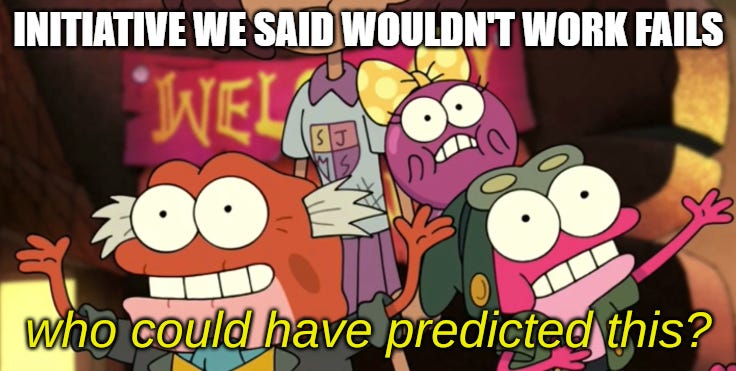My random leadership thought this week: I’m taking dance class, in part for general utility and in part because I thought it was a nice metaphor for organizational and instructional life.
My goal was to become a better follow, both on the floor and off, and what better way to do that than to engage in partner training? I’m attending the class without my own partner, like nearly everyone in the class, so we have the opportunity to dance with a variety of people.
Here’s what I quickly realized: When we rotate partners and I’m dancing with my expert dance instructor, I have absolutely no problem following. I am an excellent follow!
And why? Because she’s an excellent lead. Clear signals, good communication through a variety of channels, and highly adaptable.
What a metaphor for leadership: We already know how many problems in orgs are created and caused by poor leadership, and it’s important to understand the real origins of those problems. I was attributing my dance weaknesses to my own limitations; turns out, that’s not really the case.
I just needed better leadership.
My promise in a previous post was that we would unpack some of the skills that leaders really need, especially in the context of existing leadership training that may or may not address these items.
Even if you’re not currently in leadership or ever plan to be in leadership, I think this information can contextualize your organizational experiences, too, so I hope you find it useful.
The first thing I promised to address was listening (listed here as a core leadership skill), and I love this discussion because people so often think they’re good listeners, don’t they?
But the question I have for those folks is how they’re measuring that.
I know I am super pedantic: I hold very few positions firmly unless I have good evidence to support them, and that includes perspectives about my own self. I need evidence (and a lot of it) to be convinced of anything about my own effectiveness in any arena. So when someone else assumes they’re good at something — especially in leadership — I want to see the evidence.
Listening is a crucial component of good leadership, and if you ask 1000 leaders how good they are at it, I hypothesize that most say they are very good. Here are some of the pitfalls in that assessment, though:
Measurement, as I noted. How do you know? What evidence supports your assessment?
And what do you mean by listening?
Are you a good listener, or have you surrounded yourself with people who will reinforce your own positions?
Are you a good listener or are people afraid to tell you the truth?
Are you a good listener or do you avoid seeking out evidence that conflicts with your own biases?
Are you a good listener or do you just open the floor for anyone to speak but then never actually do anything with the information they share?
I’ve experienced all of these dynamics in organizations, as have many people: I’ve witnessed leaders who ignore good evidence that conflicts with their own positions only to watch downstream effects that can be traced back to that failure to listen.
And I’ve seen “open communication” that really just means you can say whatever you want but no one really cares; they won’t actually operationalize what they’ve heard.
Part of that problem is rooted in cognitive bias, of course; we tend to discount information that isn’t in line with our pre-existing views. It takes a lot of work to fight against those biases.
Let’s talk about that nursing study I mentioned in a previous post. Researchers extracted insights from Glass Door, a place where people can share their reviews about orgs from an employee perspective.
Complainers, leaders will say. I guarantee it!
But this is good and valuable data for leaders who understand it and who understand the dynamics of feedback. Relegating feedback to the realm of “complaint” is a move by those with power when confronted with evidence they don’t like.
Who gets to label something a “complaint”? When leaders bring something to the fore themselves, it’s an issue. It’s a problem to be solved.
But when those with less power in an organization do that, it can be labeled a complaint.
Power is the invisible variable that weaves through all of our social interactions, in my opinion, and it punches high above its weight. It’s highly influential in organizational dynamics, especially, and it determines the nature of the discourse: Who is complaining vs. who is raising an important issue to be addressed?1
Leaders don’t address concerns from the workforce, as your researchers found out in the nursing studies. They identified causes for nursing shortages and burnout, what they call the real reasons. They evaluated 150,000 entries from nurses and pulled salient themes that boil down to the following, in part:
Leadership is out of touch and disconnected. I can probably say that about most industries and many, many organizations, and I think it’s an existential threat to organizations.
Compensation is problematic.
Workload is unsustainable.
Communication lacks honesty and transparency.
These are interlocking effects, but a variable in this picture is ineffective listening.
One of the best ways to demonstrate effective listening is to operationalize feedback. Our authors state that “It’s one thing to collect employee feedback, but it’s another to consistently act on those insights.”
I’m convinced that several dynamics impede leaders’ ability to act on feedback.
Ego. We’ve talked before about ego problems in leadership.
Power. Relegating feedback to Complaint Land is a recipe for missing key insights and opportunities to build trust2.
Trust. Do people feel they can share honest feedback without fear of repercussion in the environment, and if you think so, how do you know? Perhaps they collect feedback surveys in the environment.
Personally, I never complete feedback surveys anonymously: I sign my initials to every point of feedback, but that’s not because I’m incredibly trusting and have no fear.
It’s actually because I am SO mistrusting that I want to ensure that honest and critical feedback that ISN’T mine isn’t misattributed to me.
Kinda sick, right? But environmental contexts drive our sensemaking, and this example is a result of problematic environments.
Trust, again: Do people feel that anyone will actually care or do anything with their insights?
We demonstrate listening in change processes by adjusting our plans when we hear feedback from the people charged with actually carrying out those plans. Listening isn’t just a micro-level dynamic; it’s one that is operationalized at all levels of the organization.
Here’s my recommendation for both individual and organizational improvements in listening.
For individuals, listening means moving beyond just the typical listening strategies we’ve always learned about (active listening involving summarizing someone’s perspective, asking clarifying questions, etc.).
It also means allowing ourselves to be changed by what we’re hearing. Listening in and of itself isn’t really a worthy goal; what we do with the information we’ve heard is what matters.
For organizations, transparency in communication can demonstrate listening. For example, if leaders want to implement something but hear from org members that it’s a bad idea and choose to move forward anyway, we need to make the rationale for that decision clear.
Especially in human-focused organizations where a sense of justice may be higher among employees, people can deal with unpopular decisions if they understand the rationale behind them and feel the decision-making was just.
In other words, show your work. Explain that you’ve heard the concerns, seriously considered them, but need to move in X direction for reasons ABC. Acknowledge where the feedback is RIGHT: You’re correct, but we need to do this because….
Explain the constraints. Be clear. Be respectful of the feedback you’ve received, demonstrating that you’ve understood it and that you haven’t dismissed it. Express gratitude for any bitter pills your workforce will need to swallow.
At the end of it, then, listening isn’t just about allowing people to freely share their perspectives without penalty. That’s good, of course, especially in light of our previous discussion about the drivers of innovation (psychological safety and intellectual honesty).
What really matters in the overall health of an organization, though, is what we do with what we hear.
This post was intended to help us start unpacking the core leadership skills that often remain meaningfully unaddressed in standard leadership training, and I hope you found something useful here, if not for yourself as a leader or future leader, at least as an org member.
I think having context for our organizational experiences — language to describe dynamics we witness on the daily — can help us better understand (and potentially influence!) organizational dynamics.
Up next, communication, a giant topic that we’ll distill down into a few key things, especially as we consider the varying communication and information processing needs of our complex organizational ecosystems. Until next time my friends, take good care.
And, my friends, the gender scholar in me cannot ignore how often this sort of thing occurs in the helping fields (education, healthcare, social work), where all too often, those in power represent one demographic while the workforce represents others.
See this new dashboard to demonstrate, for example, the number of male superintendents across the country in K-12 public education. Our default leadership models are still very much male, and I cannot ignore the fact that the concerns of a largely minoritized workforce end up relegated to the trash bin of complaint in those environments.
Ask educators. Ask nurses.
My favorite phrase about power is from Flyvbjerg: Power has a rationality that rationality does not know.










Share this post